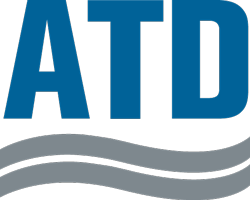Repeal the Federal Excise Tax on New Heavy-Duty Trucks – Cosponsor H.R. 2424
Promote the Transition to a Safer and Cleaner Truck Fleet
ISSUE
Congress imposes a 12% federal excise tax (FET) on the retail sale of new heavy-duty Class 8 trucks. This tax is a barrier for heavy-duty truck sales and delays the purchase of safer, cleaner and more fuel-efficient trucks. Despite the recent passage of a $40,000 federal incentive for “clean commercial vehicles,” the century-old FET remains a significant barrier to adoption of today’s more fuel-efficient trucks. Members of Congress are urged to cosponsor H.R. 2424 which would repeal the FET and help incentivize the replacement of older trucks with new safer and cleaner trucks.
BACKGROUND
The FET on heavy-duty trucks was first imposed in 1917 to help fund World War I. The 12% FET is the highest excise tax on a percentage basis that Congress levies on a product, often adding as much as $22,000 to the price of a new heavy-duty diesel truck, or $50,000 for an electric truck. The tax is imposed on top of the nearly $40,000 additional cost from recent federal emissions and fuel-economy mandates, which already makes it harder for small businesses to afford a new truck.
With 39% of the Class 8 trucks on the road today using pre-2010 engines, repeal of the FET would immediately benefit the environment by incentivizing the replacement of older trucks with safer, cleaner and more fuel-efficient trucks. A study conducted by Resources for the Future, an environmental non-profit, stated that “an exemption on federal excise taxes for medium- and heavy-duty electric vehicles can help reduce the price differential with diesel vehicles and make purchase incentives more effective.” Additionally, the Zero Emission Transportation Association supports FET repeal because the FET "harms American truckers and fleet operators by inflating the cost of heavy-duty trucks and limiting access to the many economic and public health benefits that come with transportation electrification…”
The FET has also been the most inconsistent source of revenue to the Highway Trust Fund (HTF) over the past 20 years. Since FET revenue is dependent on volatile annual truck sales, the tax has contributed to the overall instability of the HTF. To establish long-term stability for the HTF, the 12% FET should be replaced with a more consistent revenue source.
KEY POINTS
- Accelerating heavy-duty truck fleet turnover will have a significant impact on highway safety. FET repeal would increase highway safety by incentivizing the replacement of older trucks with advanced technology trucks. New trucks offer the latest safety options, such as anti-lock braking systems, electronic stability control, and other driver assistance systems to help reduce roadway safety crashes.
- FET repeal would immediately benefit the environment by replacing older trucks with cleaner and more fuel-efficient trucks. While new trucks have made significant environmental gains, such as reducing nitrogen oxide emissions by 97% and particulate matter emissions by 98%, the FET remains a costly barrier to the purchase of new trucks with the latest environmental technologies. With 39% of the Class 8 trucks on the road today using pre-2010 engines, FET repeal would immediately incentive the replacement of older trucks with more fuel-efficient trucks.
- Repealing the FET would spur new truck sales and protect the 1.3 million U.S. manufacturing, supplier, dealership and heavy-duty trucking and trailer related jobs. FET repeal would support American workers in manufacturing and sales and drive the adoption of advanced technology trucks.
STATUS
A bill to repeal the FET has been introduced in the House (H.R. 2424) by Reps. Doug LaMalfa (R-Calif.), Chris Pappas (D-N.H.), Darin LaHood (R-Ill.), Salud Carbajal (D-Calif.) and Max Miller (R-Ill.). A Senate companion bill is expected to be reintroduced soon. ATD and eight trucking organizations sent a letter to Senate Finance Committee and House Ways and Means Committee leadership urging passage of the bill in the 118th Congress.
Contact

